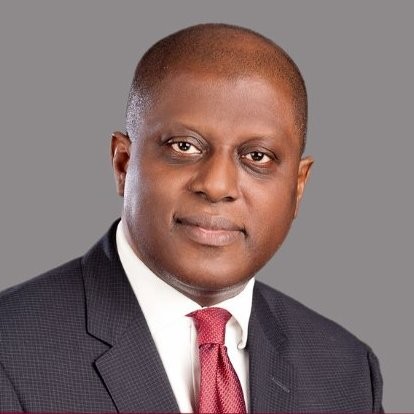The Federal High Court in Abuja has fixed June 23 for hearing of the contempt proceeding against the Central Bank of Nigeria (CBN) Governor, Olayemi Cardoso, over alleged disobedience to a Supreme Court judgment.
Justice M.G Umar fixed the date after Chikaosolu Ojukwu, SAN, who appeared for the applicant, and CBN’s lawyer, Abdulfatai Oyedele, presented a brief argument when the case was mentioned.
The News Agency of Nigeria (NAN) reports that in June 2024, the Supreme Court overturned a previous forfeiture order against Melrose General Services Limited’s funds, which had been frozen following an investigation by the Economic and Financial Crimes Commission (EFCC).
The disputed sums included N1,222,384,857.84 in Melrose’s bank account and N220 million paid by the company to Wasp Networks and Thebe Wellness as loan and investment.
The apex court had ruled that the EFCC had not proven the funds were proceeds of fraud, as alleged.
The court set aside the lower courts’ forfeiture orders, directing the release of the funds to their rightful owners.
However, despite the Supreme Court’s decision, Melrose’s lawyers filed a lawsuit at the trial court, alleging that the CBN and its top officials had only partially complied with the judgment.
Melrose, in its application before Justice Ekwo, averred that while the N1.22 billion was refunded, the outstanding N220 million remains unpaid.
The disputed money was part of the Paris Club refund.
The company, through its counsel, filed the contempt suit against the CBN governor; the apex bank’s Director of Legal Services, Salam-Alada Kofo; the EFCC and the Minister of Finance, arguing that their refusal to release the full amount constitutes contempt of court and undermines the Supreme Court’s authority.
When the case was called, Ojukwu told the judge that the EFCC had written a memo to the CBN, instructing the apex bank to comply with the Supreme Court judgment.
“That memo from EFCC is not even attached to the CBN’s affidavit before the Court,” he added.
He alleged that the CBN knew that if they produced the EFCC memo in their documents, the court would see what transpired.
He said that if the money was paid, his client would not have come to court.
The judge then asked Abdulfatai if he was contesting Ojukwu’s submission.
The CBN counsel maintained that the order of the Supreme Court was clear and that if Melrose is alleging disobedience to the order, it is not applicable to the CBN.
He stressed that the money in respect of which Melrose went to the Supreme Court had been paid to the company.
He said it is “strange for one entity to be demanding money that is due to other entities.”
“With the greatest respect, the CBN has complied with the order of the Supreme Court.
“We are not in contempt,” he said, highlighting that the apex bank had paid Melrose and Wasp, while the third entity was yet to be paid as the bank has not received a demand from them.
After listening to the lawyers, the judge adjourned the case until June 23 for hearing.
He also ordered that a hearing notice be issued to the defendants.
NAN recalls that the dispute stems from the controversial Paris Club refund, a settlement involving payments to consultants for services rendered to the Nigerian Governors’ Forum (NGF).
The EFCC had claimed that an investigation revealed N3.5 billion was allegedly fraudulently paid to the appellant for a purported consultancy job for the NGF.
At the apex court, Melrose’s legal team argued that the disputed funds were payment for a contractual and consultancy agreement between their client and relevant government stakeholders
In its majority decision, the Supreme Court agreed with the appellant, ruling that the EFCC failed to prove the funds were proceeds of fraud.
Consequently, the court upheld the appellant’s case and set aside the lower courts’ forfeiture orders.



